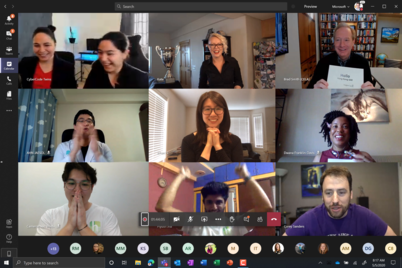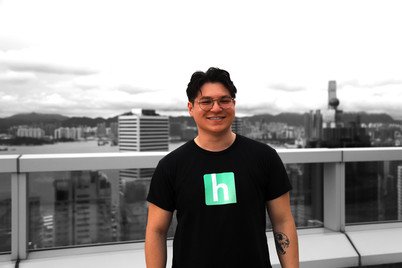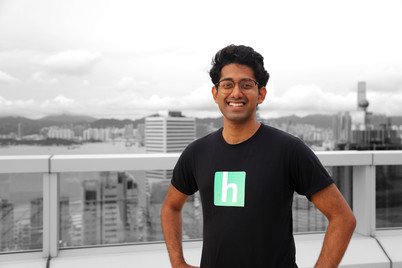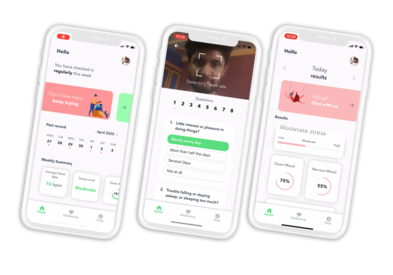AI for Mental Health
While patients may often forget the details of their daily routine, the app is able to record them, providing health workers with extensive and personalised data that can lead to faster treatment and less trauma for their patients.
Young people who experience mental health problems such as stress or depression often find it difficult to ask for help, even from friends and family, for fear of stigmatisation or meeting a lack of understanding. Hollo, a free mental health companion app, makes it easy to access practical support and help with a few clicks of a smartphone. The app is designed to help sufferers monitor their condition and understand some of the triggers that make them feel better or worse. It also provides quick access to emergency services.
Hollo was founded by Cameron van Breda, a fifth-year student studying Molecular Biology and Biotechnology, who was motivated to help those suffering from mental illness after losing a friend to suicide.
He sees the app as a way to encourage people to seek help while avoiding stigmatisation. “In Hong Kong, one in seven people will suffer a mental health problem in their lifetime, but only 35 per cent of them will reach out for professional help because of the stigma associated with mental health issues,” he explained.
The app was incubated at iDendron and is designed to be an easily accessible go-to tool in times of stress, and offers objective analysis and friendly suggestions to better their mental fitness. It targets 12 to 24 year-old youth and works in both English and Chinese, introducing them to therapy and counselling practices through online gamified journaling and mindfulness activities. With leveraging Azure analytics and AI services it helps track users’ mental health through different metrics like sleep quality, heart rate, stress level and social media sentiment. By using the camera to look at the user’s face and comparing it to its internal facial pictures bank, the app can assess the user’s emotional status. Clicking on the ‘Help’ icon leads to a fast connection to professional help, with 24-hour hotlines operating in different languages and support services from NGOs.
Health professionals find the app very helpful for monitoring the daily habits of their patients, such as their exercise and sleep routines, to better understand their emotional fluctuations and to enable them to provide more accurate diagnosis and treatment before the patients’ situation is going to get worse. While patients may often forget the details of their daily routine, the app is able to record them, providing health workers with extensive and personalised data that can lead to faster treatment and less trauma for their patients.
Cameron has had plenty of positive feedback on the app. “Strangers have reached out to share their experiences in mental health,” he said. “It gives people hope that help is coming.”
He believes that education targeting the next generation is the best way to reduce the stigma associated with mental health problems. Although that may take some time, he says that if his app can help even one person feel better, it will have been worth all his efforts.





